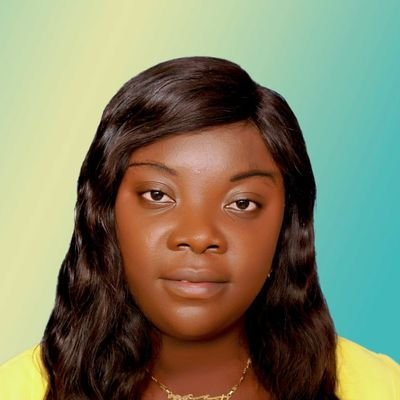A human rights lawyer per excellence, Margaret is also an indefatigable woman human rights defender (WHRD) who has won the adulation of millions in her country for her impassioned dedication to defending the rights of women and girls in her native Liberia.
But it was not always this promising for her. Born 37 years ago in Grand Kru, Southeastern Liberia, Margaret had to do with a childhood of abuse, neglect, and want, after her, her sibling and her mother were abandoned by their father at an early age.
“My sister and I grew up seeing our father abuse our mother physically and emotionally, until he abandoned us altogether. So, my mother had to do odd jobs to fend for us, and I ended up dropping out of school, becoming a teenage mother myself, trying to support her. In the end, the accumulation of this abuse took a toll on my mother until she eventually died. I come with such emotional baggage to this, which enables me to connect deeply with other victims of gender-based violence (GBV) and other related injustices,” she says
Magaret Muna Tweet
That experience has since fueled Margaret’s resolve, determined to ensure that as many women as possible have better life options than her own mother was able to access. She studied law at university and was initially employed as a government Prosecutor with Liberia’s Anti-Corruption Commission. “I interacted regularly with women who were abandoned by their husbands, those who were abused, and in them, I saw my mother – I knew that without help, they too would probably suffer her fate. So, I decided to reach out – to help them.”
Margaret resigned her well-paying job, and started offering probono services for these women in distress. In 2017, she started a social initiative; Her Voice Liberia, through which she set out to campaign for the defense of women’s rights. Two years later, realizing the insufficient access to justice for especially Liberia’s women at the grassroots, she started Her Voice Legal Aid mobile clinic, through which she would go to villages, listen to women’s justice issues, and pursue justice for as many as she could.
In 2020, with the advent of COVID-19 and the world-wide stay home restrictions, Liberia, like elsewhere saw a marked increase in GBV cases, and demand for Her voice Legal Clinic’s services shoot through the roof. Women in distress would send signals and Her Voice Legal clinic would go to their rescue, including providing temporary shelter to women who were living with abusers and needed relocation. They would also prosecute cases in courts which were open but inaccessible by ordinary people due to restrictions in movement.
Despite the clinic’s work taking up most of her time, Margaret was not bothered. In fact, she says, she was deriving fulfillment from her and the clinic’s efforts, because that is the role her mother would have wanted her to play:
So far, Her voice Legal Aid Clinic has offered legal support to over 900 women in Liberia. The team has also expanded, and now has a total of six female volunteer lawyers who are offering services. This month, supported by OSIWA – Open Society Initiative of West Africa, Legal Aid Clinic will be launching mobile legal booths at eight magisterial courts in rural Liberia. The booths will have a legal aid officer, a psychosocial worker/counsellor, and a lawyer that will work closely with prosecutors to make them more effective in prosecuting GBV cases and other human rights issues.
“Despite the significant strides made, Margaret says demand for their services remains more than their capacity to meet it. “Getting more volunteer lawyers to offer pro-bono services is difficult. Lawyers make a lot of money representing people, so asking them to devote themselves to free work is difficult ,” she says.
Margaret Muna Tweet
Overall, though, Margaret acknowledges there are visible gains that have been made. Her initiative has stirred up a sort-of social revolution against GBV in Liberia’s countryside, and women are more assertive of their rights. For Margaret, this consciousness is a far-bigger achievement than she ever imagined when starting out. Her efforts have also won her the humbled recognition of her father, – one of Liberia’s most recognizable lawyers, who has since signed up to her legal aid clinic. It’s his way of trying to make up for the abuse and abandonment he subjected Margaret and her sister to.
For Margaret, anchored on by her mother’s painful memory, the journey has just begun:
“I always see myself as a survivor. I never had the opportunity for people to come and talk to my mother to help her stand her emotional and physical distress that finally claimed her life. So, I come with empathy – I see every suffering woman as my mother. I want a better life for them. And it’s something that I enjoy – I fill fulfilled doing this work. When a woman smiles, I am encouraged to support more. Sometimes, they bring me chicken, goats, and whatever else they can afford. And it gives me so much joy” she says.
Margaret Muna Tweet

